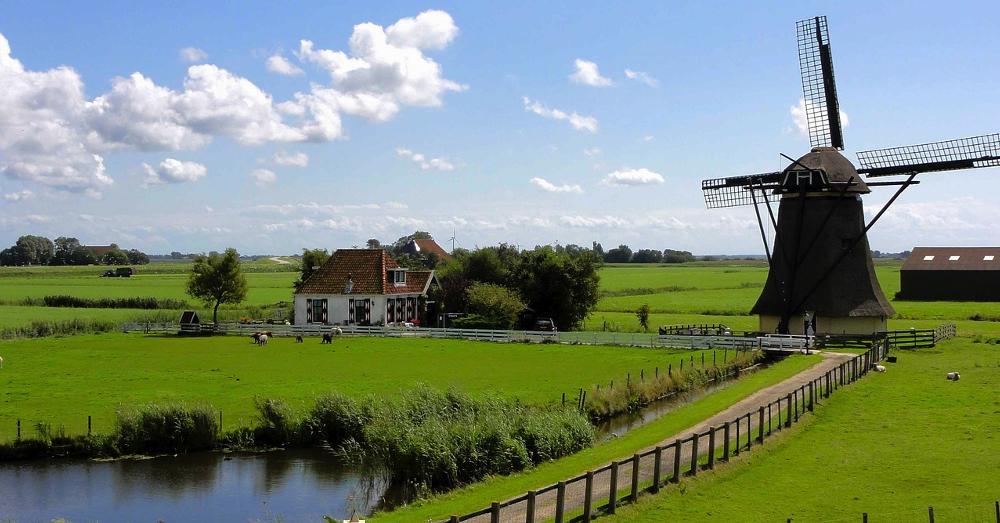
Biodynamic Farming and the Legacy of Rudolf Steiner
Biodynamic farming is a spiritual-ethical-ecological approach to agriculture initially developed by Austrian scholar Rudolf Steiner,1 Ph.D., (1861-1925). It’s an approach that can provide far superior harvests compared to conventional chemical-based agriculture, while simultaneously healing the Earth.
July 1, 2017 | Source: Mercola.com | by Dr. Joseph Mercola
Biodynamic farming is a spiritual-ethical-ecological approach to agriculture initially developed by Austrian scholar Rudolf Steiner,1 Ph.D., (1861-1925). It’s an approach that can provide far superior harvests compared to conventional chemical-based agriculture, while simultaneously healing the Earth.
Not only does biodynamic farming provide superior crops both in volume and increased density of nutrients, but biodynamic farms are also completely self-sustaining. As noted in the featured film, “The Challenge of Rudolf Steiner,” sustainability, and the personal independence and freedom that sustainability provides, was incredibly important to Steiner.
It’s a very long film — over three hours — but if you have an interest in biodynamic farming or Steiner’s worldview in general, it’s well worth watching. He taught there is an invisible force that aids and sustains humanity, and biodynamic farming makes use of a wide variety of influences, including planetary influences and moon phases.
Regenerative agriculture has been one of my passions for the past few years, and I’ve read many books and interviewed many experts in this area. Over these past few years, I’ve tested a number of different strategies to improve plant growth, such as vortexed compost tea, rock dust powders, magnetic structured water, ionic ocean minerals, biochar, many types of foliar sprays and mulch like wood chips.
Steiner’s Legacy Lives On
Steiner has had a profound influence, making an indelible mark on the world. Profoundly prolific, his complete works fill more than 330 books, much of which are now available online in German and English.2
Steiner was a trained scientist and respected philosopher, a true eclectic and visionary far ahead of his times. His voluminous works span a wide range of topics, from “The Mysteries of Antiquity” and writings on Nietzsche and Goethe, to “The Philosophy of Freedom” and “Spirit and Matter” to the “Birth of the Biodynamic Method.”
He wrote about economics, politics, art, architecture, drama, therapeutic speech, epistemology, religion, science, medicine, education and more. You could spend your entire life studying his life’s work, many aspects of which are detailed in this two-part film.
Education — The Steiner Way
Aside from agriculture, Steiner had a deep interest in early education, and his principles are alive and well to this day. In the U.K. alone, there are more than three dozen Steiner academies of learning, and the natural world, including farming skills, is an integral part of the curriculum.
Steiner kindergarten academies “provide ‘unhurried and creative’ environments for learning,” The Guardian wrote in 2012.3 Trevor Mepham, principal of Steiner Academy Hereford, told the paper, “It’s about keeping that vitality and that freshness and that twinkling eye. I think that’s common sense, though. It’s just that we arguably try to do that as a matter of course.”
“There’s something undeniably wholesome about the Steiner approach,” The Guardian notes. “In an age when toddlers are adept at using iPhones, the idea of children building shelters in the woods is profoundly attractive to parents. Access to television is restricted — under the homeschool agreement with parents, children are not meant to watch TV before the age of 8.
There is no uniform; the children wear hoodies, sturdy trousers and plimsolls, and the canteen serves mainly vegetarian food. A homely vegetable curry spiced with mustard seeds is dish of the day when I visit …
‘As human beings we have a close and important relationship with the natural world. To pretend that we just need gadgetry and technology, that misses out a very vital part of the piece,’ Mepham says. ‘Especially when children are young, we need to try to foster in them an interest and sense of inquiry and hopefulness about the natural world.’”
https://www.youtube.com/watch?v=GUIDxIKBqLA
